Cabinet Office recently published a Procurement Policy Note (PPN 03/23) to announce the introduction of a new Standard Selection Questionnaire (SQ).
Although dated February 2023, it wasn’t published until the 9th March giving contracting authorities and eProcurement platform providers just three weeks to introduce it to their procurement exercises and systems.
The PPN 03/23 provides clarity on a number of issues:
- the changes contracting authorities can make to the wording of questions
- what is meant by “relying on another organisation” to meet the selection criteria
- seeking information from groups of suppliers
The changes to the SQ vary between minor text changes and the introduction of a number of new sections, including:
- amendments to financial questions and checks
- introduction of health and safety questions
- introduction of supply chains questions
- introduction of data protection questions
- introduction of additional requirements for modern slavery and clarity on handling responses to questions on the Modern Slavery Act
- introduction of questions related to reducing carbon emissions
- introduction of updated payment questions
- formatting the SQ template responses to part 2 (exclusion) questions as self-declarations rather than simple yes/no answers.
The changes and additions provide greater clarity for buyers, however it is important that the SQ, when used, is proportionate and relevant to the procurement exercise.
Changes contracting authorities can make to the wording of questions
The PPN states that no deletions or additions can be made to the mandatory questions in parts 1 and 2 of the SQ, however, if contracting authorities wish to deviate from the questions set out in part 3 for supplies and services procurements, they must report this to domestic-policy-queries@cabinetoffice.gov.uk
What is meant by “relying on another organisation” to meet the selection criteria
The PPN advises that an organisation is relied on for the purposes of the standard selection questions if the potential supplier is relying on the technical and professional ability and/or the economic and financial standing of the organisation to meet the selection criteria in part 3.
Seeking information from groups of suppliers
If a potential supplier is bidding on behalf of a group/consortium, or intends to use subcontractors, there may be different actions required for completion of part 3 of the standard questions compared to part 1 and part 2.
The response to part 1 should make it clear who the lead member of the group/consortium is, and who will be contractually responsible for delivery of the contract.
Where the group/consortium is proposing to create a separate legal entity, such as a Special Purpose Vehicle (SPV), in part 1, they should provide details of the actual or proposed percentage shareholding of the constituent members within the new legal entity.
They should also provide the name for the new entity and details of its legal and operational structure.
All members of the group/consortium may be required to provide the information in part 3 of the selection questions, as part of a single composite response (unless the question specifically directs otherwise).
Alternatively, contracting authorities can choose to ask all members of a group/consortium or subcontractors relied on to meet the selection criteria to complete their own section of part 3, as well as part 1 and part 2, so selection checks can be undertaken on them.
Amendments to financial questions and checks
Contracting authorities should clearly state any minimum Economic and Financial Standing (EFS) requirements and selection criteria and describe the methodology for assessing EFS clearly.
The financial assessment method used depends on the requirement. Contracting authorities do not have to use every question in this section – only those that are relevant and proportionate.
Where they consider the list of permitted evidence does not enable them to make an assessment of EFS, they may ask for other evidence to be provided (in accordance with reg 60(8) PCR 2015), but this must be relevant to the subject matter of the contract and proportionate, and should be reported as a deviation.
If a supplier does not itself meet minimum financial requirements, you can allow them to rely on the financial standing of a group or parent company or fellow consortium member if they are willing to provide appropriate security or support, for example in the form of a parent company guarantee.
Buyers should note that small companies only need to file abbreviated accounts with Companies House but may have more detailed accounts for shareholders and HMRC.
Health and Safety questions (Question 8.5)
Questions about compliance with environmental law obligations (which include health and safety legislation) are included in part 2.
If buyers wish to include a selection criterion relating to suppliers’ technical and professional ability in managing health and safety in their organisation and in the supply chain, they can include the optional Health and Safety question.
The type and level of relevant experience and capability for managing health and safety risks may vary, depending on the risks, size and complexity of the requirement.
Guidance from the Health and Safety Executive describes what is appropriate and proportionate in particular circumstances.
Supply Chain questions
Where a potential supplier is proposing to subcontract a portion of the contract they should provide a relevant example where one or more of the essential subcontractors have delivered similar requirements (separate examples are not required from each subcontractor).
For central government contracts £5m and above per annum, buyers may ask potential suppliers to demonstrate how they will maintain a healthy supply chain, including paying subcontractors promptly using the payment question.
This includes the supply chain management and tracking systems that the economic operator will be able to apply when performing the contract.
Data Protection questions (Question 8.6)
In procurements for contracts involving processing personal data, contracting authorities should use appropriate selection criteria relating to potential suppliers’ technical and professional ability in implementing the appropriate technical and organisational measures to comply with GDPR and to ensure the protection of the rights of data subjects.
Where this is linked to the subject-matter of the contract and proportionate, selection criteria should be used to assess potential suppliers’ human and technical resources to perform the contract to the appropriate standard and potential suppliers should be asked to provide proof by reference to the technical facilities and measures they have in place.
Additional requirements for Modern Slavery and clarity on handling responses to questions on the Modern Slavery Act
Central government authorities should consider whether modern slavery risks apply to the contract, using the risk assessment table in the PPN’s guidance, to ensure such risks are clearly identified and appropriately managed.
In new procurements identified as at high risk of modern slavery occurring, bidders should detail their supply chain members and submit self-declarations for each of those supply chain members.
This means that Parts 1 and 2 declarations will be required from the bidder’s supply chain members for procurements designated as at a high risk of modern slavery occurring.
Central government contracting authorities should detail in their specification how far down a supply chain they want to collect this information.
Questions related to reducing carbon emissions
For central government contracts of £5m and above per annum, contracting authorities can ask potential suppliers to confirm their commitment towards achieving Net Zero by 2050 by providing a Carbon Reduction Plan using the Carbon Reduction questions to ensure the necessary environmental management measures are in place.
Updated payment questions
The PPN sets out how payment approaches can be taken into account in the procurement of major Government contracts.
Central government authorities should apply the PPN when procuring goods and/or services and/or works with an anticipated contract value above £5 million per annum (excluding VAT) which are subject to the Public Contracts Regulations 2015, to assess whether a bidder that intends to use a supply chain to deliver the contract, has effective payment systems in place to ensure the reliability of that supply chain.
Works Contracts
The PPN states that for works contracts, including the procurement of mixed contracts that include supplies and services, contracting authorities should use the Common Assessment Standard (CAS), or PAS91, in place of the standard SQ template in pre-qualification of bidders.
However, it will be for individual contracting authorities to ensure the questions used are relevant and proportionate to the contract being procured, ensure equivalent standards are permissible and a level playing field for all types of suppliers.
Below Threshold Procurements
As many will already be aware, contracting authorities must not include a pre-qualification stage in any procurement (for supplies, services or works) that has a value below the relevant threshold for supplies and services.
However, the PPN advises that the threshold for using a pre-qualification stage for works procurements (“works SQ threshold”) is the same as for supplies and services procurements, which means that for works contracts valued above the supplies and services threshold (including where they are below the works threshold) contracting authorities may include a pre-qualification stage (using questions from the CAS)
Finally, it is important to note, at the current time, the PPN applies only to contracting authorities in England, and contracting authorities in Wales and Northern Ireland that exercise wholly or mainly reserved functions.
If you would like advice on this or any other aspect of public procurement, please complete our enquiry form or call us on 0141 270 7666.
While all information provided is given in good faith, the contents of these articles are not to be construed as legal advice or a substitute for such advice, which you should obtain from your legal advisors if required. We are not and shall not be held responsible for anything done or not done by you as a result of the information provided.


